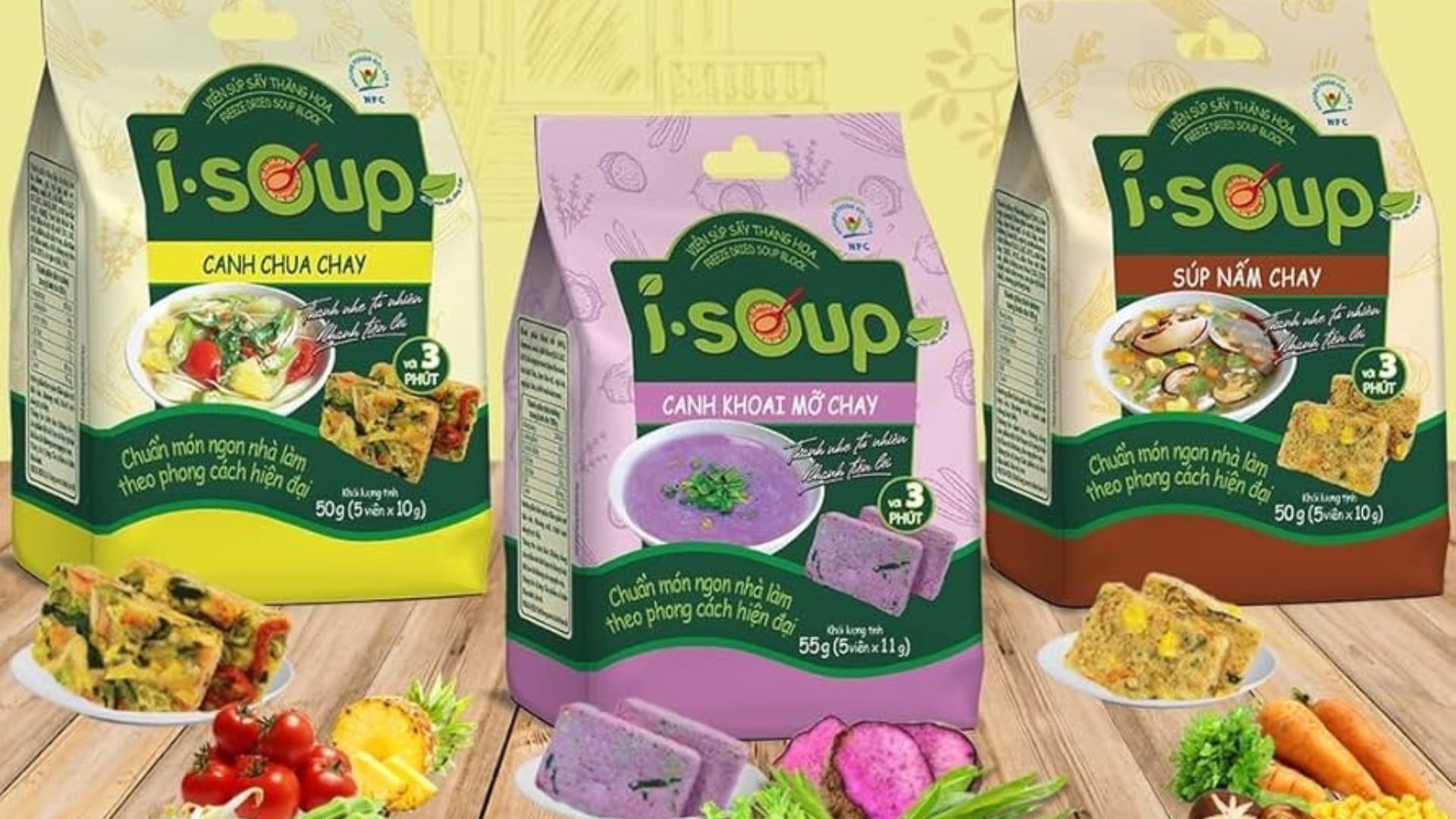NFC is expanding its portfolio of freeze-dried products to capture a greater share of the RTE segment in Asia-Pacific.
Its offerings include iSoup freeze-dried mushroom soup broth, exported to Japan, and I-Ya.Ua freeze-dried yoghurt, shipped to the US – positioning the firm as both a domestic innovator and an international supplier.
The company markets its products as ideal for quick, nutritious meals at work, on outdoor trips, or as a home pantry staple.
Focus on food safety and traceability
CEO Phan Hoang An emphasised that NFC’s convenience foods do not come at the expense of safety, quality, or flavour.
He credits this achievement to the firm’s substantial investments in a fully integrated production line that adheres to rigorous international standards including HACCP, ISO 22000, BRCGS, FDA, and HALAL.
“Every stage – from ingredient selection and preparation to freeze-dried and packaging – is tightly controlled.
“Each product undergoes sensory, microbiological, and physicochemical testing before reaching consumers.”
The firm also boasts a modern traceability system that further ensures transparency across the entire production process, reinforcing consumer trust.
“We do not view technology merely as a production tool, but as a commitment to community responsibility. Every NFC product is a combination of convenience, nutrition, and safety – so consumers can feel confident choosing it for their families,” said Phan.
NFC is positioning itself as a brand that promotes eating and living well.
It was recently featured on An Lanh Song Chat (Eat Well, Live Well), a television programme aired on Vietnam’s HTV9 that provides audiences with knowledge about smart eating solutions and raises awareness on food safety.
During the programme, NFC representatives shared in-depth insights into the freeze-drying process and the company’s quality control system.
How freeze-drying tech preserves flavour, nutrition, and quality
Unlike traditional drying methods, freeze-drying removes water from ingredients while they are frozen, turning ice directly into vapour without passing through the liquid stage.
This preserves colour, flavour, and nutritional content, removing the need for artificial preservatives.
With extremely low moisture levels, NFC’s products retain their quality for extended periods, meeting consumer expectations for clean-label, natural foods.
Looking ahead, the company plans to expand its range of convenient, nutritious, and safe products “offering modern dining experiences that retain the authentic essence of their ingredients,” said the firm.
Potential of the RTE market
Vietnam’s RTE food market is projected to reach US$145.89 million in 2025, with an expected annual growth rate (CAGR) of 13.69% from 2025 to 2029, according to Statista. This growth is driven by urbanisation, changing lifestyles, and rising disposable incomes.
By 2029, the market is expected to hit US$243.75 million.
Regionally, the APAC RTE food market is also expanding rapidly. Mordor Intelligence projects it will grow from US$227.54 billion in 2025 to US$298.56 billion by 2030.





